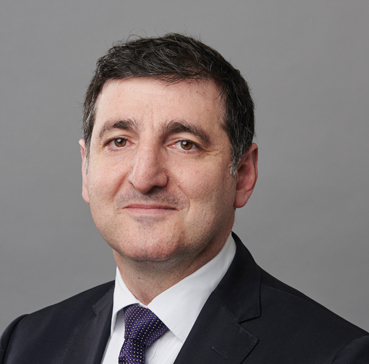Exposure to global equities is fundamentally important for diversification. The standard ‘moderate investor’ profile in Australia typically has a 50% strategic equity weighting in their asset allocation. Of this, it is recommended that 20% is allocated as international equities. There are currency issues of course, and a combination of hedged and unhedged investments through a cycle is also recommended.
Diversification
Of the many reasons to have exposure to global equities, one standout is the relatively small size of the Australian equity market compared to global markets. Ultimately, when looking for exposure to global equities, Australian-based investors need to understand whether they need to have the same weighting to large material/resource companies in their global portfolios given they already have the leveraged exposure in their domestic equity weighting. For example, the three largest material/resource companies globally are BHP, Vale and Rio. When building an international equity portfolio an investor should not simply invest in the same type of earnings exposure when Australia already has an index with a large weighting to both BHP and Rio. Diversify into other sectors.
Further, exposure to the growth premia (that is, the higher economic growth rate of the emerging economies, which is 5% versus the 1.3% for the traditional developed economies) from the emerging economies can be seen in many companies that are not reflected locally. For example, technology (Apple, Google, Microsoft, Qualcomm), global payment systems (AMEX, MasterCard, VISA, eBay), core global luxury brands (Ralph Lauren, Hermes, LVMH) and other multinationals (Johnson & Johnson, Nestlé, John Deere, Caterpillar) all have leveraged earnings linked to the strong performing emerging economies that is not replicated in our local market. Think of it as searching for some earnings diversification for your portfolio. This is partly the reason why the US S&P 500 has outperformed local equities in recent years.
Australian investors benefited from the deregulation of the financial sector in the early 1990s combined with the current mining sector boom from the early 2000s. Effectively, these two sectors have been the main earnings growth drivers for most of the past 17 years in Australia. But recently, these sectors have not seen explosive earnings growth. This is an issue because they are both a large weighting in our local equity index. The one major advantage of local equities is the consistently higher dividend compared to other global developed bourses as well as the franking credit (but there is a bias locally to financials).
Which stocks?
So what type of stocks should you hold in an international portfolio? Remember, we are searching for earnings growth that is not reflected in the local market. So all the stocks mentioned above are relevant and have featured in our recommendations (presently and in the past). Table 1 shows the current top global equity picks that should feature in the satellite part of your portfolio (i.e. not your core). The core/satellite approach to portfolio construction is for another day. Also, note the smaller dividend yield versus the local market (around 5% lower than my Australian Equity Income Portfolio).
In summary, diversification is always the key. Therefore, diversify your portfolio with global equities that reflect earnings growth that are not represented in our local market.
International Equity Satellite Portfolio

George Boubouras is the Head of Investment Strategy & Consulting at UBS Wealth Management.
Important information: This content has been prepared without taking account of the objectives, financial situation or needs of any particular individual. It does not constitute formal advice. Anyone should, before acting, consider the appropriateness of the information in regards to their objectives, financial situation and needs and, if necessary, seek professional advice.
Also in the Switzer Super Report:
- Peter Switzer: Is the stock market about to trip up?
- Paul Rickard: Budget preview: five potential changes to the cap
- Tony Negline: Federal budget preview: make contributions now
- Rudi Filapek-Vandyck: The broker wrap: four stock buys

